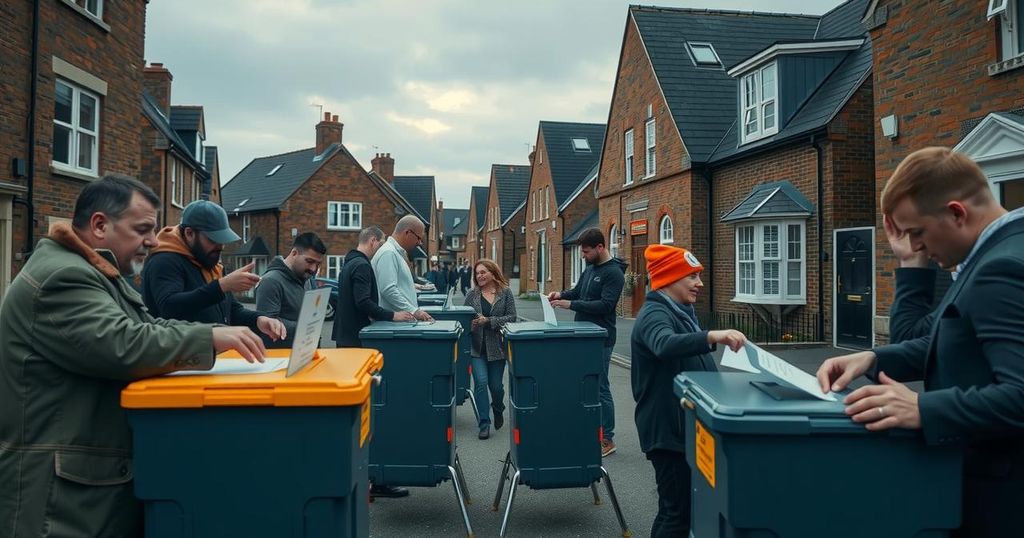Ireland Votes in Tight Election Amid Housing Crisis
Ireland is engaged in a closely contested election featuring centre-right coalition parties Fine Gael and Fianna Fail competing against leftist-nationalist Sinn Fein. All three parties are maintaining around 20 percent support amid a backdrop of a severe housing crisis. Voter concerns focus on historical issues, contrasted with recent shifts in immigration policy. The election results will take days to materialize due to proportional representation counting methods.
Ireland is currently experiencing a closely contested election, with polling indicating that the centre-right coalition parties, Fine Gael and Fianna Fail, are in a tight race with the leftist-nationalist party Sinn Fein. Voters began participating in the electoral process on a recent Friday, reflecting the high stakes surrounding housing crisis issues. Polls revealed that both coalition parties and Sinn Fein are hovering around 20 percent, showcasing the electorate’s divided sentiments.
This follows a period of rising public discontent concerning the government’s handling of public services, particularly regarding the ongoing housing crisis which has resulted in soaring rents and property prices. Despite Fine Gael and Fianna Fail managing to maintain broad support, their approval ratings have fluctuated, impacted by an incident involving Fine Gael’s leader, Simon Harris, during the campaign. While Sinn Fein initially dominated opinion polls, their support has diminished due to criticisms regarding their stance on immigration issues.
The importance of this election is underscored by previous coalition arrangements, where Fine Gael and Fianna Fail, despite historical rivalry, formed a coalition after the inconclusive 2020 elections. Voting concludes with counting commencing in Ireland’s constituencies, yet results may take several days due to the intricacies of the proportional representation counting system.
The current election in Ireland is profoundly shaped by the country’s housing crisis, marked by escalating rents and property prices, which have provoked widespread public frustration. The coalition of centre-right parties, Fine Gael and Fianna Fail, is contending for power against Sinn Fein, a party that has historically faced skepticism due to its connections to the Irish Republican Army. This election reflects a battle not only for control of government but also for addressing crucial public concerns about living conditions and the management of public services in light of a booming economy nourished by corporate taxes from multinational firms. The past couple of years have seen dynamic shifts in voter sentiment, especially concerning immigration policy, highlighting the complexities voters consider at the polls.
In conclusion, the ongoing election in Ireland encapsulates significant public concerns related to the housing crisis and economic governance. With poll results indicating a competitive race among political parties, the outcome remains uncertain. As vote counting begins, the reflection of public sentiment on critical issues will undoubtedly choreograph the future landscape of Irish governance. The intricacies of the proportional representation system will add further complexity in determining the final election results.
Original Source: www.aljazeera.com




Post Comment